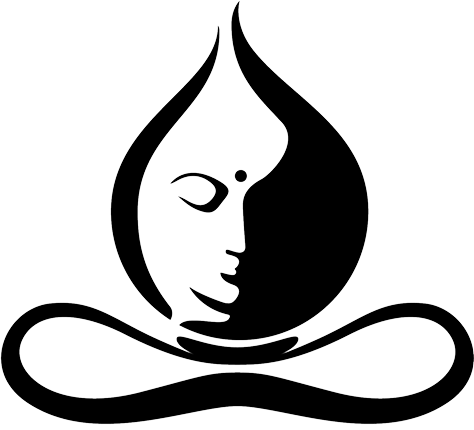In marriage, not every couple remains together until the end of their lives. Some relationships gradually lose their warmth, the harmony fades, and it becomes clear that the bond between the two has run its course. But how can you recognize when the connection between a husband and wife has ended? And once you realize that, what should you do? This article will guide you through the signs, help you understand the causes, and offer advice on how to part ways peacefully.
What is Karma in Buddhism?
In Buddhism, relationships are not seen as mere chance encounters. They are shaped by fate and karma accumulated over multiple lifetimes. A husband and wife come together due to this karmic connection—sometimes to create a happy, fulfilling life together, and at other times to settle past grievances or debts from previous lives.
Marriage is not only a path to joy and happiness but also a chance to learn valuable lessons in patience, sacrifice, and unconditional love. However, when that karmic bond is fulfilled and the debt is repaid, the relationship naturally begins to fade, much like water flowing into the vast ocean.
Signs a Marriage May Have Run Its Course
When a marriage is coming to an end, you may notice shifts in your emotions, behaviors, and how you interact with each other. Here are some common signs that a relationship may have reached its end:
Love Begins to Fade
What was once a passionate love may now feel distant and cold, like a stream that has dried up. The moments of sharing joy and sorrow become less frequent, replaced by indifference. This shift can start with small things, such as forgetting to ask about each other’s day or no longer feeling the desire to spend time together.
Often, this fading of love isn’t the fault of just one person; both may have stopped nurturing the connection. When a relationship lacks care and attention, love naturally begins to fade, much like a lamp running out of oil.
Lack of Understanding
Understanding is a crucial foundation in marriage. However, when a husband and wife no longer want to listen to each other, communication becomes a barrier rather than a bridge. Every conversation seems to lead to arguments, or the words exchanged feel forced and devoid of emotion.
This disconnect happens when both partners stop making the effort to understand one another. Instead of trying to see the deeper meaning behind each other’s words or actions, they simply listen to respond or to prove their own point. This growing lack of understanding creates an irreparable distance, slowly eroding the connection between them.
Living Under the Same Roof, but Going in Different Directions
Though still living together, each person follows their own separate path. The wife may have concerns and dreams that the husband no longer cares about, and the same goes for him. There are no longer shared evenings spent discussing the future or making joint plans.
This isn’t just a difference in interests or ambitions—it’s a soul-deep disconnection. One partner heads east, the other west. Even though they share a home, their minds and hearts are miles apart.
Feeling Exhausted and Wanting to Let Go
The relationship shifts from a source of joy to a burden. One or both partners feel emotionally drained, no longer motivated to put in the effort to fix things. They no longer want to argue or explain themselves; they simply want to let go.
This is the clearest indication that the relationship has run its course. The exhaustion isn’t just from conflicts—it stems from the realization that they no longer see a reason to continue. Letting go doesn’t come from hatred, but from the understanding that they’ve reached the end of their emotional capacity.
Reasons Why a Marriage May End
According to Buddhist teachings, the end of a marriage is a natural result of cause and effect, with no notion of right or wrong or assigning blame. When the relationship has fulfilled its purpose, the karmic debt is settled, and the connection naturally fades, much like a river flowing into the ocean. Some marriages may stem from past karma, but once that karmic bond is resolved, the couple may find themselves drifting apart.
Additionally, marital love requires ongoing care and understanding to thrive. Without this nurturing, love can easily diminish over time. Furthermore, changes in each partner’s life goals can create distance. When both individuals no longer share the same vision or are not aligned in their values, emotional separation becomes inevitable, ultimately leading to the end of the relationship.
However, the end of a marriage is not a finality; it offers an opportunity for personal growth. It’s a chance to reflect on the journey, appreciate the lessons shared, and let go with compassion. In the context of Buddhist teachings, letting go without bitterness brings peace, allowing each individual to move forward.
What to Do When You Feel Your Marriage Is Over?
If you sense that your relationship is no longer what it once was, it’s important to take a step back and reflect. Is the growing distance the result of a true end to the relationship, or could it be the result of misunderstandings or a lack of care? Take time to explore these questions before making any final decisions.
Accept and Let Go If Necessary
When you have done your best but the feeling of rift still cannot be saved, perhaps the fate between the two people has really run out. In this case, holding on will only increase the suffering for both. Learn to accept and let go in peace, cherish what both of you once had. Letting go does not mean giving up, but is a liberation for both, so that each person can continue their journey with a light heart.
Prayer and Dedicating Merits
In Buddhism , praying and dedicating merit is a way for you to send compassion and love to your partner, whether the relationship ends or not. Spend time chanting sutras, reciting Buddha’s name and dedicating merit to your partner, wishing them happiness and peace on the path ahead. This will not only help you feel lighter but also bring blessings and good karma for both of you in future lives.

A Story About Fate and Letting Go
A man once approached the Buddha, troubled by the growing coldness in his relationship with his wife. He felt lost and unsure of what to do.
The Buddha looked at him and asked, “Do you see the river? It flows forward, never holding onto what is behind. Think of your relationship like this river. When the time comes for the bond to end, there’s no need to cling to it. Simply cherish the memories, and let it flow peacefully.”
The man reflected on the Buddha’s words, and in that moment, he found inner peace. He accepted the need to let go and embraced a new path in life.
The end of a relationship is not a finality but the beginning of a fresh journey. By understanding the signs and reasons behind a breakup, you can choose to love or let go in a way that honors both your feelings and your future. Allow everything to unfold naturally, holding onto compassion and peace in the face of change.




